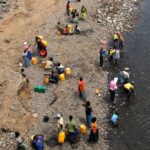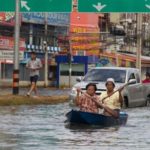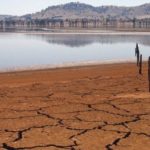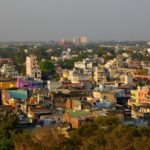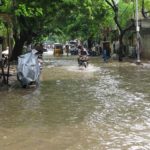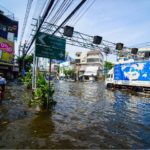Posts tagged with 'WRI Aqueduct'
New data from WRI’s Aqueduct Water Risk Atlas show that 25 countries — housing one-quarter of the global population — face extremely high water stress each year, regularly using up almost their entire available water supply. And at least 50% of the ...

South Africa’s cities are economic engines, drawing workers across the country and the continent. Of the country’s 58.8 million population, 68% live in urban areas. Between 2000 and 2014, urban area in South Africa expanded by 1,464 km2. Population projections ...

Africa’s population is growing faster than any other continent’s and its urban population is expected to more than double by 2050. This urban rapid growth, which is mostly sprawling “horizontal” growth, as the World Resources Report: Towards a More Equal City shows, is combining with climate ...

Flooding has already caused more than $1 trillion in losses globally since 1980, and the situation is poised to worsen: New analysis from WRI’s Aqueduct Floods finds that the number of people affected by floods will double worldwide by 2030. According to data from ...

Once-unthinkable water crises are becoming commonplace. Reservoirs in Chennai, India’s sixth-largest city, are nearly dry right now. Last year, residents of Cape Town, South Africa narrowly avoided their own “Day Zero” water shut-off. And the year before that, Rome rationed water to conserve scarce ...

One of South India’s biggest cities is almost out of water. A year after Cape Town, South Africa, had its own “Day Zero” crisis, the reservoirs in Chennai are nearly dry, leaving millions in this usually-wet coastal city wondering if they ...

Chennai faced a devastating flood in 2015 that killed hundreds of people and displaced many more. Today, the southern Indian city’s four main reservoirs are virtually dry. This crisis is not only due to lack of water. Lack of proper management is ...

India is undergoing rapid urbanization: within fifteen years, about 600 million Indians will live in urban areas. Given that cities practically run on water, India must find a way to route clean, reliable water supplies to its citizens, helping meet their needs for ...

Cities contribute 70 percent of the world’s energy-related greenhouse gas emissions and play an essential role in climate change mitigation. However, since average global temperatures are already rising and the effects of climate change are becoming increasingly palpable around the world, ...

The worst drought to grip São Paulo, Brazil and neighboring states in 80 years is wreaking havoc on the local population. As of late October, key reservoirs hold less than two weeks’ worth of drinking water. Schools and health centers are closing early, ...










